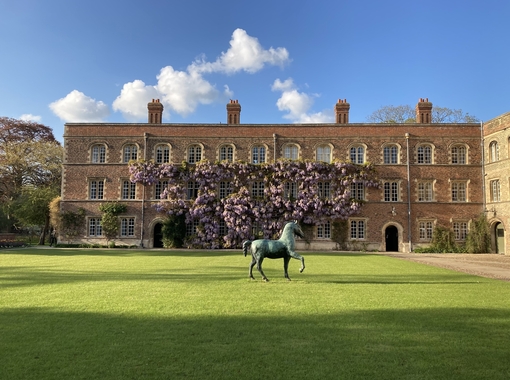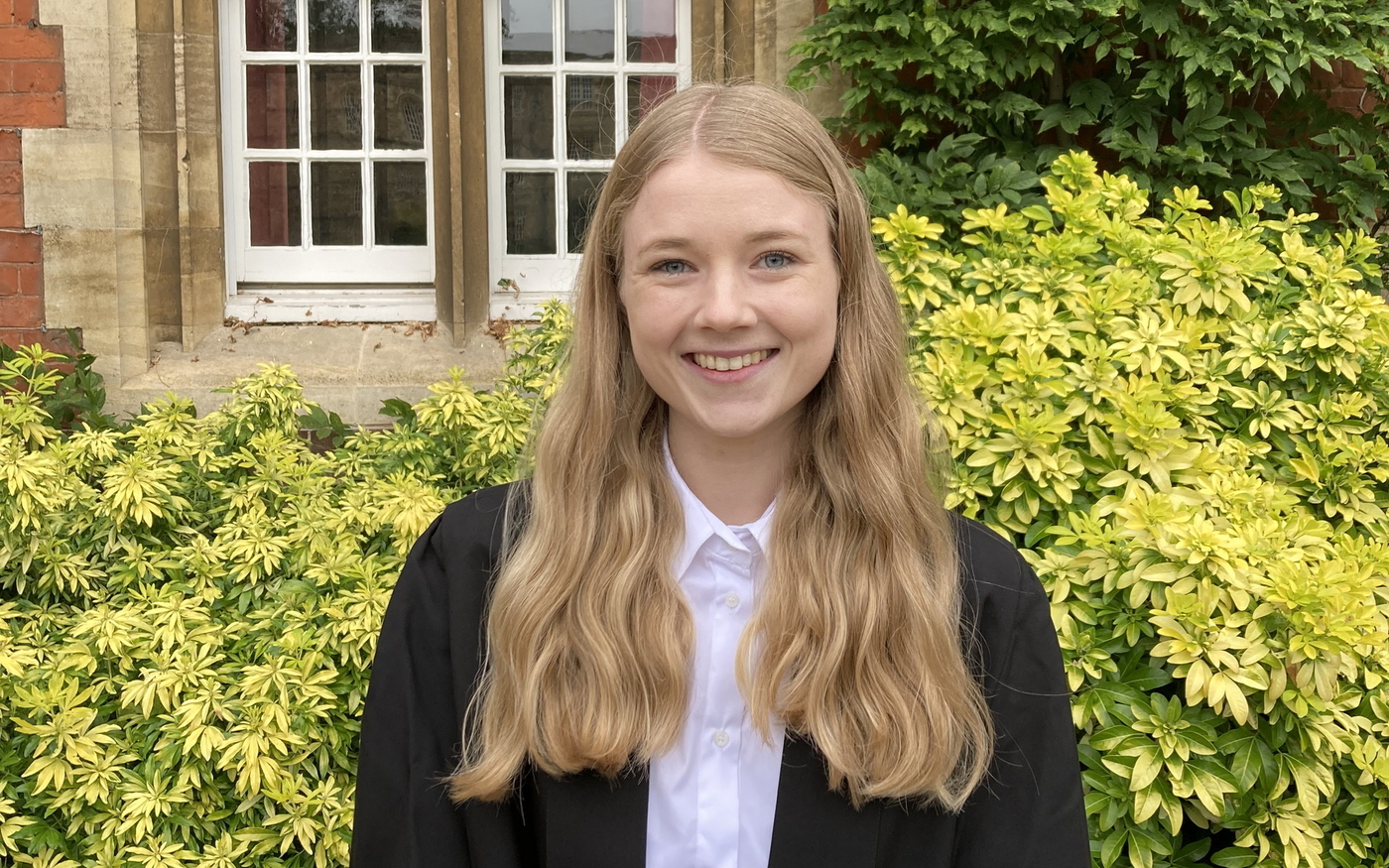"Classical studies and languages are remarkable as they are a window into another world which is both exotic and familiar. Modern culture can be traced to a large extent to the Greeks and the Romans, in such diverse fields as literature, politics, philosophy, history, art and architecture, and linguistics. Besides, these programmes are very interesting in themselves," says Sólveig Hrönn Hilmarsdóttir who graduated from the University of Iceland in the summer of 2021. She was recently awarded a major grant for her PhD studies from the Gates Cambridge scholarship programme, the University of Cambridge’s flagship international postgraduate scholarship programme.
Sólveig did a double bachelor degree in Latin and Greek at the University of Iceland, and is currently enrolled in a Master's programme in the classics at Cambridge University.
The scholarship programme was established through a substantial donation to the University of Cambridge from the Bill and Melinda Gates Foundation in 2000.
The grant is among the most prestigious offered to international postgraduate students.
The aim with the Gates Cambridge scholarship programme is to support students who have already achieved much in terms of their academic studies and leadership abilities, and who have shown their commitment to improving the lives of others.
Chosen from a cohort of 5,000 applicants
Between five and six thousand students apply for this grant every year. This year there are 79 new Gates Cambridge Scholars from 30 countries, including Sólveig. "It is rewarding to receive the recognition that comes with being a Gates Cambridge Scholar, and for me it is a unique chance to do my PhD studies in the UK as studying in Britain is extremely expensive. The grant I received is around 30 million ISK as it covers both tuition and the cost of living for up to four years," says Sólveig on the meaning of the grant. She adds that the grantees also join a rich network of students and alumni that continues after they have completed their studies.
Recommends exchange studies at the University of Iceland
After graduating from an upper secondary school in Iceland, Sólveig went to the University of Iceland to study Latin and Greek on a scholarship from the Student Achievement and Incentive Fund.
"Studies in Greek and Latin open up the door to literature written in these languages. I have read a lot of excellent works ranging from poems by Catullus and Ovidius, to fractions of the book of Iliad and the Odyssey and pieces on philosophy by Platon," says Sólveig who did a double bachelor degree in Latin and Greek.
During her studies at the University of Iceland Sólveig took an exchange programme at the University of Glasgow; a great experience and a good preparation for her current studies, she says. "I would recommend to everyone to make use of the opportunities offered by the University of Iceland in exchange studies. It was a good preparation for my current master studies in Cambridge to have learned about the British higher education system and to have gotten to know the trends in classical studies on the international scene. Glasgow is also a lovely city and a great place to live. Furthermore, you make all kinds of new friends from all over the world through exchange studies and I am still in touch with many of the people I met in Glasgow.
"I would recommend to everyone to make use of the opportunities offered by the University of Iceland in exchange studies. It was a good preparation for my current master studies in Cambridge to have learned about the British higher education system and to have gotten to know the trends in classical studies on the international scene," says Sólveig

Variation in language has always existed
Sólveig's doctoral thesis will be on Latin sociolinguistics, a new and growing subject within classical studies. "I'll be focusing on connections between linguistic behaviour and social status of various Roman authors, concentrating on Latin epistolography; letters written to and from individuals such as the Roman scholar Cicero and St. Augustine, theologian and philosopher.
My thesis should open up possibilities for new research on Latin literary works as the connection between the linguistic behaviour and the social status of Latin authors has hitherto not been systematically studied. I will continue to work with the same supervisor I have in my Master's programme, James Clackson, who is a specialist in the field and we have worked well together," explains Sólveig.
She hopes her research will reveal that variation in language has always existed. "Eiríkur Rögnvaldsson, professor emeritus in Icelandic linguistics, has done important work in the last few years working against linguistic prejudice in today’s Iceland. A part of eradicating linguistic prejudice is to refute the myth that everyone spoke "correctly" in the past and that the language was perfect.
This is not true; neither in Old Norse nor in Latin, even though this is a common misconception about these ancient languages.
Ample opportunities for classicists
One may wonder about the relevance of Classical studies and languages in modern society characterised by speed, technology, and rapid changes.
"As classical studies and languages are to some extent "minority" subjects here in Iceland, people are often surprised by the ample opportunities related to studies in these programmes.
These are popular subjects in many countries, such as Italy, Germany and the United Kingdom. Studies in the classics is a good foundation for diverse careers in teaching, administration, law, the media, and the cultural sector. Classicists in Iceland have studied at many of the best universities in the world; Cambridge, Oxford, Princeton, and Harvard, and they hold diverse jobs at the University, in the political sector, and elsewhere," Sólveig points out. She also points out that there are various writings from medieval times in Iceland, and a large part of learning from the past is only accessible in Latin. It is thus vital that we continue to teach and learn these subjects here in Iceland.
Where to after the doctoral studies? "I want to work in academia, doing research and teaching in higher education. I had many excellent opportunities to do both in my undergraduate studies at the University of Iceland. I was an assistant teacher in basic courses Latin and Greek at the Faculty of Languages and Cultures, and I also worked that the UI's writing centre as well as one summer with Latin manuscript fractions at the Árni Magnússon Institute for Icelandic Studies. I am looking forward to continuing on this path," concludes Sólveig on her future plans.




